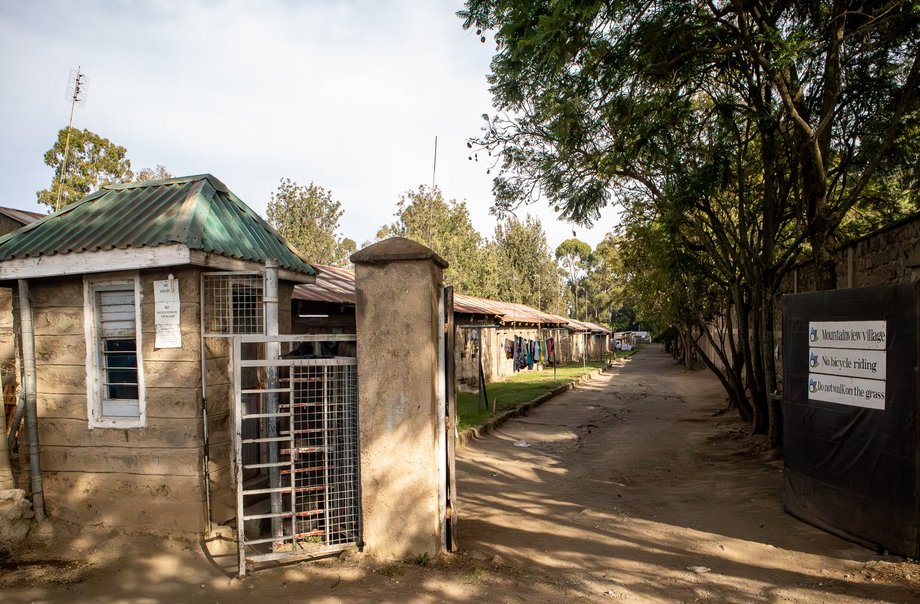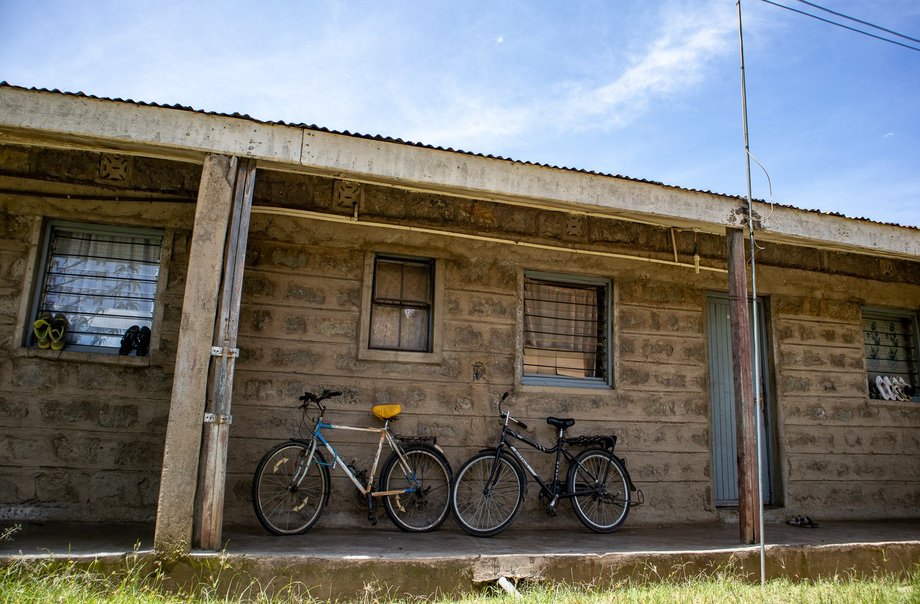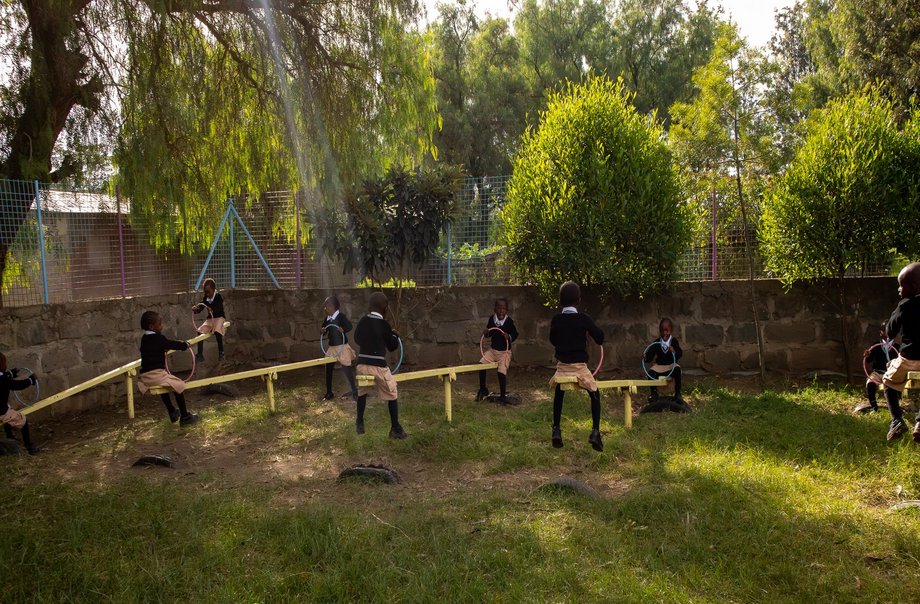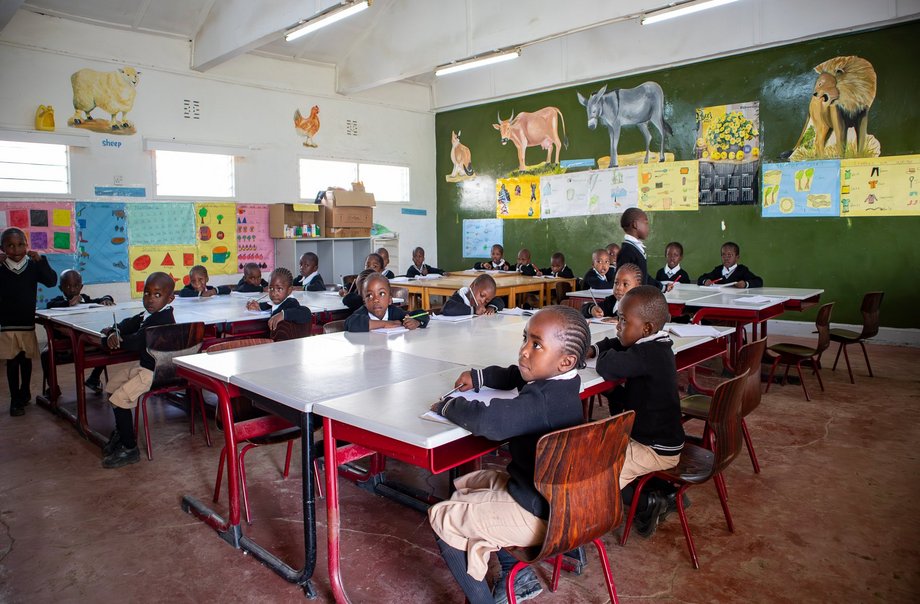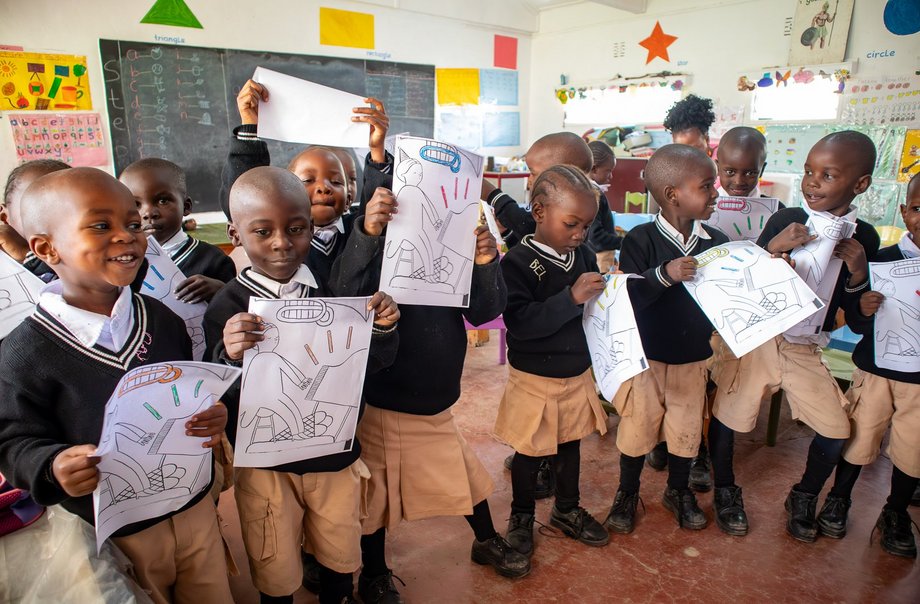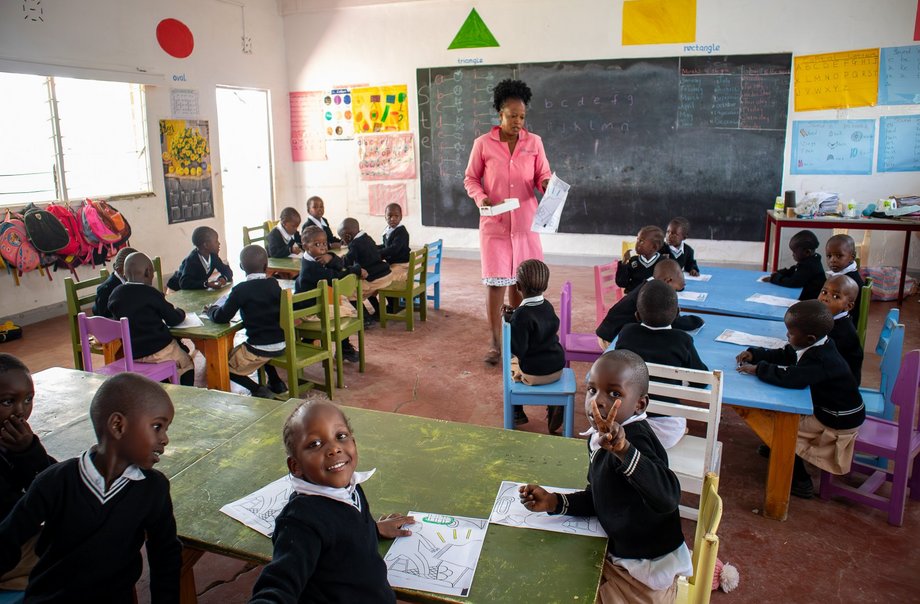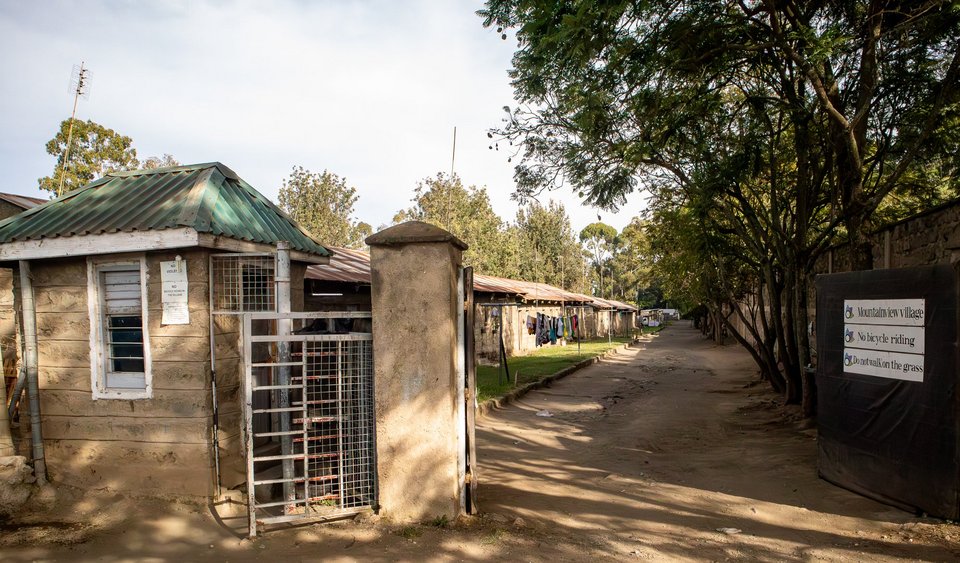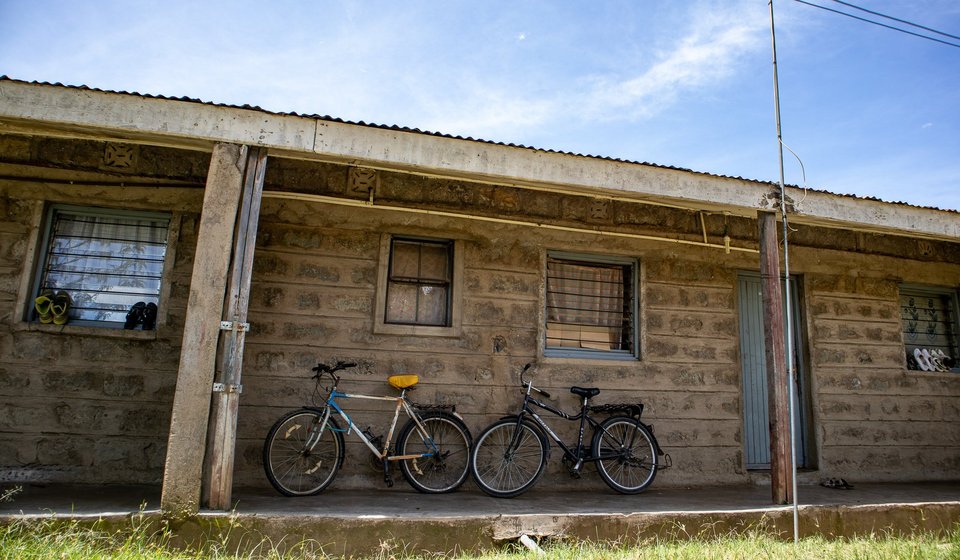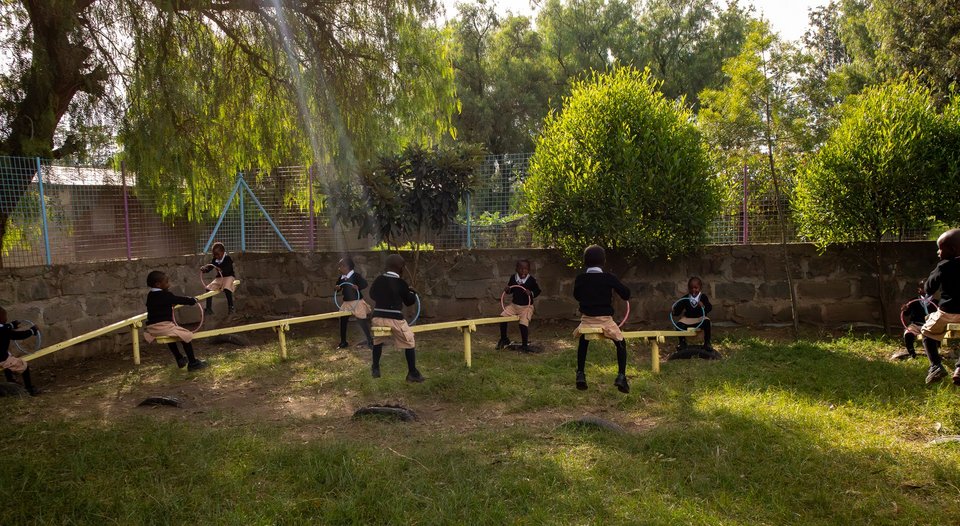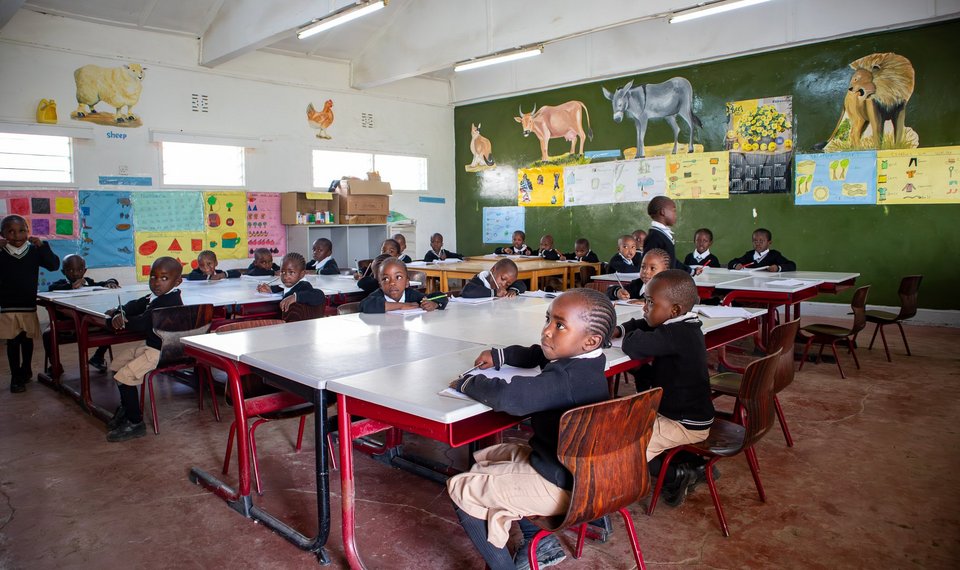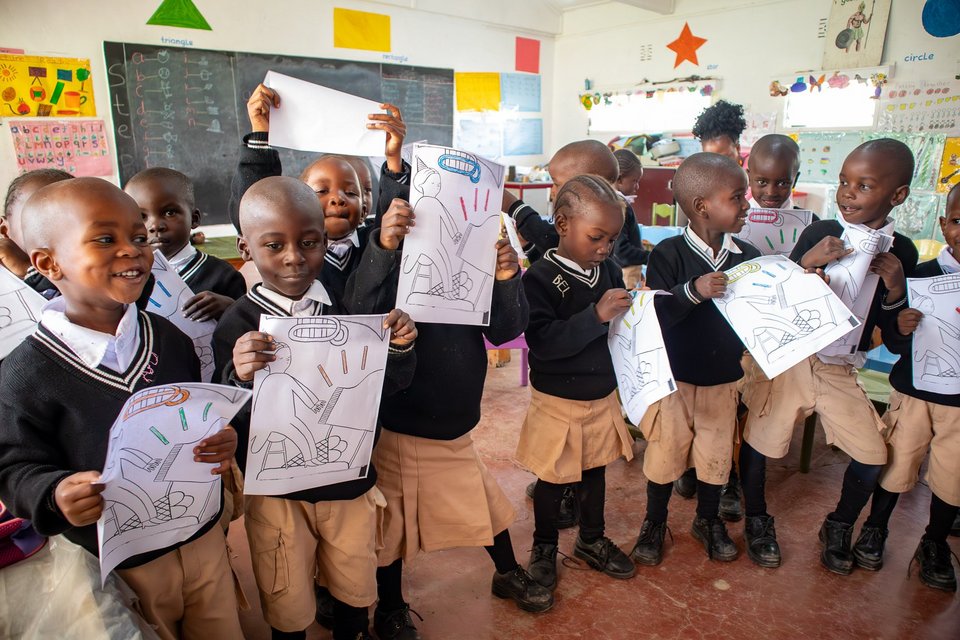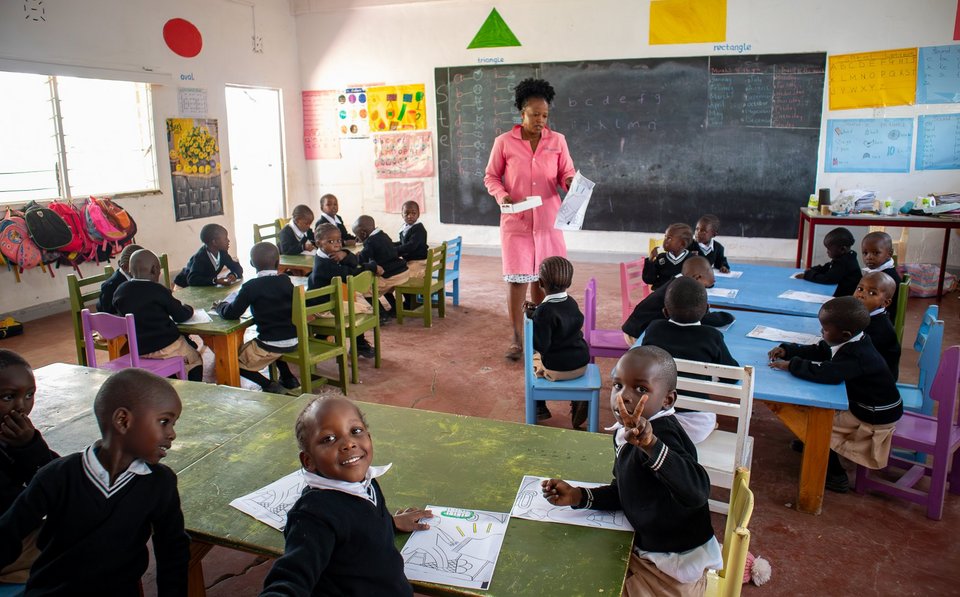
In 2022, toom was the first retailer in Germany to launch a pilot project with Fairtrade Germany for more cuttings with the Fairtrade seal. For the workers, Fairtrade certification brings many benefits such as fixed employment contracts, maternity protection, minimum wage and bonuses. Our colleague Ribanna Jansen is responsible for this topic at toom and was on site in Kenya. In this interview, she tells us what impressions she gained from her trip and what the future plans are for the project.
What many people in this country don't realise: Poinsettias do not originally come from Europe, but from East Africa, where the cuttings are sometimes produced under difficult conditions for the workers. To change this, toom has been selling only Fairtrade-certified poinsettias throughout Germany since 2015. REWE also offers Fairtrade-certified poinsettias at Christmas.
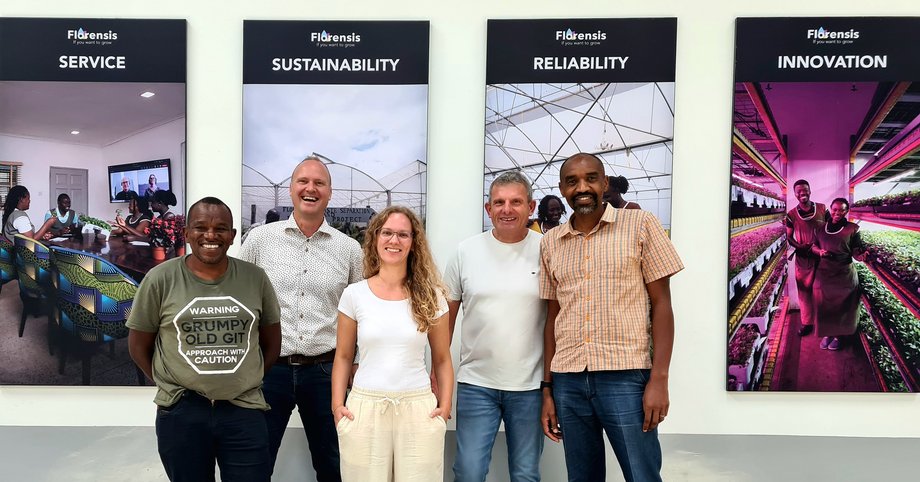 In front of the Florensis corporate principles (from left): Edwin Kihara (Head of Production, Florensis Kenya), Eddy Verbeek (General Manager, Florensis Kenya), Ribanna Jansen, Thomas Reinhardt, Simon Mwangi (Agronomist, Florensis Kenya)
The joint pilot project between toom and Fairtrade Germany increases the Fairtrade premium income of workers in countries of the Global South, reduces costs in the Global North and thus makes Fairtrade cuttings a truly more sustainable alternative to conventional cuttings.
In front of the Florensis corporate principles (from left): Edwin Kihara (Head of Production, Florensis Kenya), Eddy Verbeek (General Manager, Florensis Kenya), Ribanna Jansen, Thomas Reinhardt, Simon Mwangi (Agronomist, Florensis Kenya)
The joint pilot project between toom and Fairtrade Germany increases the Fairtrade premium income of workers in countries of the Global South, reduces costs in the Global North and thus makes Fairtrade cuttings a truly more sustainable alternative to conventional cuttings.
Fairtrade certification brings many advantages for the workers: Fixed labour contracts and maternity protection are two very crucial aspects. They also receive a minimum wage and benefit from the Fairtrade premium. In addition to the regular Fairtrade premium, toom also pays an extra premium. This is verified by the independent certification organisation FLOCERT at the importers and at toom.
As part of the project, cuttings farms in Kenya were Fairtrade-certified. As Team Lead Sustainability & Business Operations Plants, Ribanna is responsible for all sustainability issues relating to potted plants at toom, REWE and PENNY, and works in our plant warehouse in Bottrop. In order to guarantee toom's Fairtrade promise, she flew to Kenya to familiarise herself with the conditions on the cutting farms. We interviewed her afterwards.
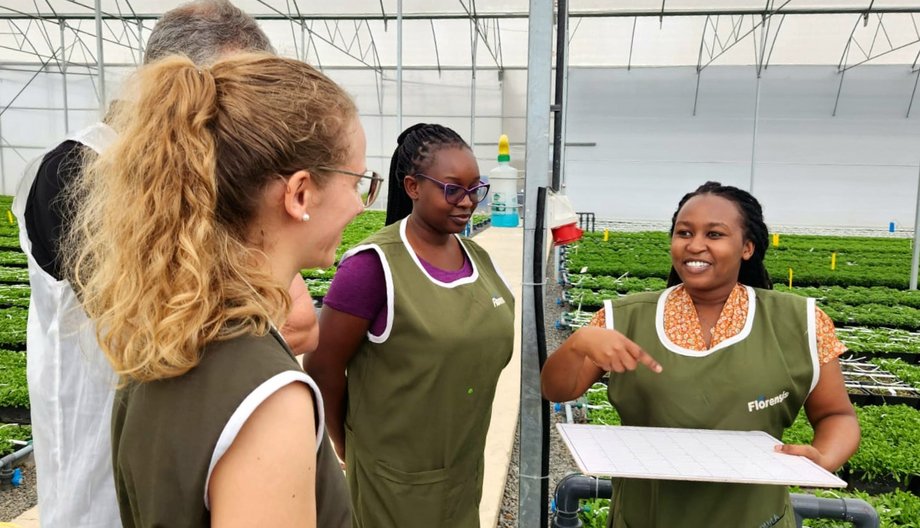 (from left) Ribanna Jansen (Team Lead Sustainability & Business Operations Plants, toom Baumarkt DIY store), Thomas Reinhardt (Sales Representative, Florensis Germany), Florence Obonyo (Sustainability & Social Officer, Florensis Kenya), Pauline Mathenge (Supervisor cutting harvest, Florensis Kenya)
one: Ribanna, why exactly did you fly to Kenya?
(from left) Ribanna Jansen (Team Lead Sustainability & Business Operations Plants, toom Baumarkt DIY store), Thomas Reinhardt (Sales Representative, Florensis Germany), Florence Obonyo (Sustainability & Social Officer, Florensis Kenya), Pauline Mathenge (Supervisor cutting harvest, Florensis Kenya)
one: Ribanna, why exactly did you fly to Kenya?
Ribanna Jansen: First and foremost, to get an idea of the farms on site. But it was also important to talk to the farms' management team about how processes could be further improved. I wanted to find out from the workers what Fairtrade means to them and what they would like to do with the premium income and see how we can push the issue further together with the farms, the young plant companies that operate the farms in the global South and also with Fairtrade itself.
one: What did you look at?
Ribanna Jansen: I visited a total of four cutting farms and one cut rose farm. We did an extensive tour of the two newly Fairtrade-certified farms. In addition to the greenhouses, I was also able to see the social facilities.
The farms offer some of the employees accommodation on the farm premises. In addition, there are often facilities such as a kindergarten, a preschool, a doctor's surgery or a canteen. One farm had a natural sewage treatment plant and a system for treating drinking water, which we visited. That is incredibly valuable! The Naivasha region, where many cuttings farms are located, lies in the Rift Valley, i.e. the Great Rift Valley. The region has very fluoride-rich water, which causes damage to the teeth and porous bones of people who ingest the unfiltered water.
I also visited the Fairtrade Africa office in Naivasha and spoke to the Fairtrade staff there about the pilot project.
one: What impressed you the most? And what did you remember in particular?
Ribanna Jansen: I particularly remember the conversations with the representatives of the Fairtrade Award Committees of the two newly Fairtrade-certified farms. The employees are very proud to now be working on a Fairtrade-certified farm and have high hopes for the project. It was moving to hear what they would like to do with the first premium income. For example, one committee wants to build a bus stop for the school bus so that the workers' children no longer have to walk three kilometres from the farm to school and back in the morning and evening in the dark and on unsecured roads. These are issues that we fortunately don't have to deal with in Germany. But they are a reality there and I am glad that solutions are being sought.
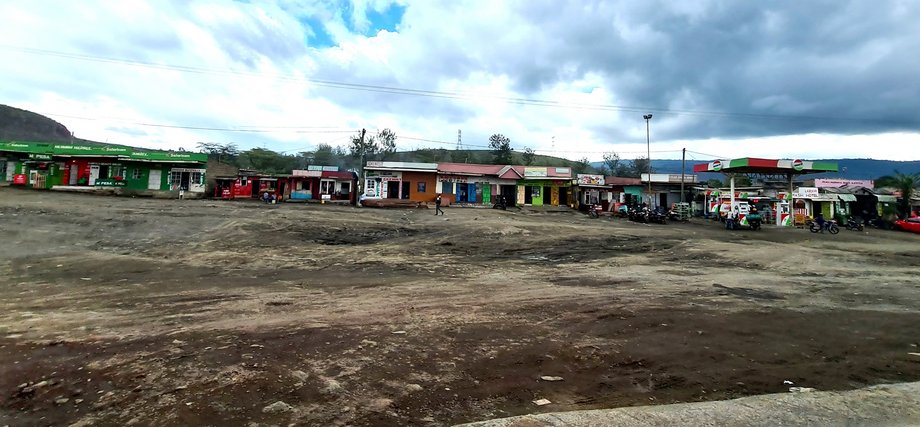 Naivasha City
One of the most moving things for me was the visit to a children's home, which is financially supported by one of the two newly Fairtrade-certified farms. Around 45 boys live there who were separated from their families for various reasons and lived on the streets before coming to the centre. The children receive regular, simple meals and school lessons at the home. Attempts are also made to reunite them with their families.
Naivasha City
One of the most moving things for me was the visit to a children's home, which is financially supported by one of the two newly Fairtrade-certified farms. Around 45 boys live there who were separated from their families for various reasons and lived on the streets before coming to the centre. The children receive regular, simple meals and school lessons at the home. Attempts are also made to reunite them with their families.
one: How will the project continue?
Ribanna Jansen: We are delighted that our pilot project has been nominated for this year's Fairtrade Award in the business category. The award ceremony will take place in Berlin in June. In 2024, our focus will be on further expanding the Fairtrade range at toom, currently to just under 100 items. We are also working with Fairtrade Germany and Fairtrade International to transfer the measures and procedures trialled in the pilot project to the general Fairtrade ornamental plant standard and make them accessible to the market. This will enable even more workers on cutting farms in the Global South to benefit from the Fairtrade system in the future.
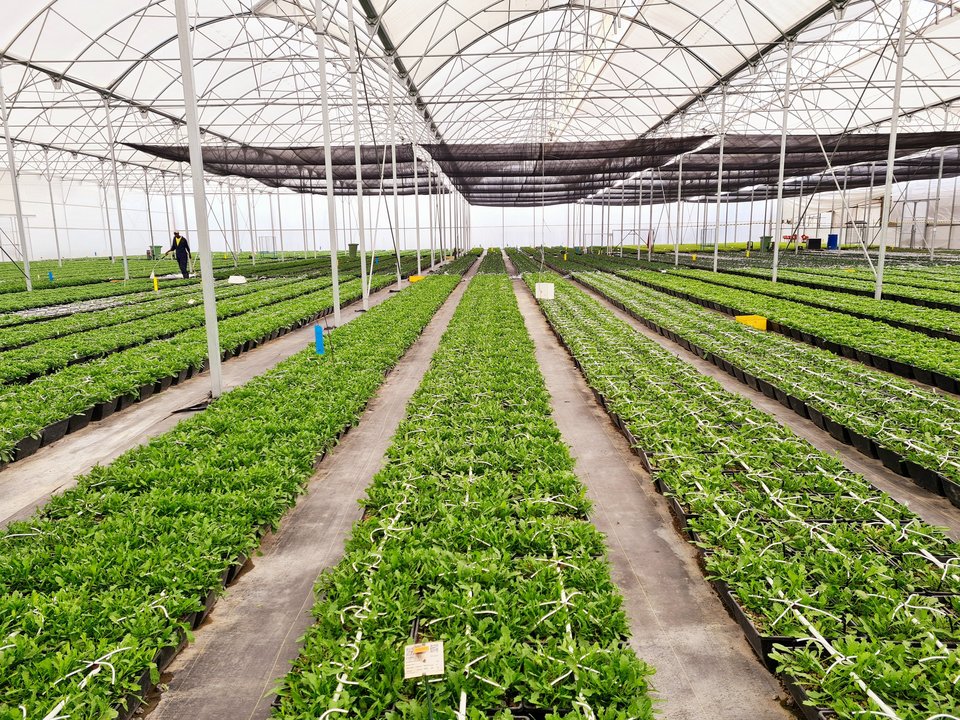
More information on this topic can be found here in one:
More cuttings with the Fairtrade seal at toom
Fairtrade poinsettias, more sustainable arrangements and Fair Trees
Fairtrade stars for the festive season

